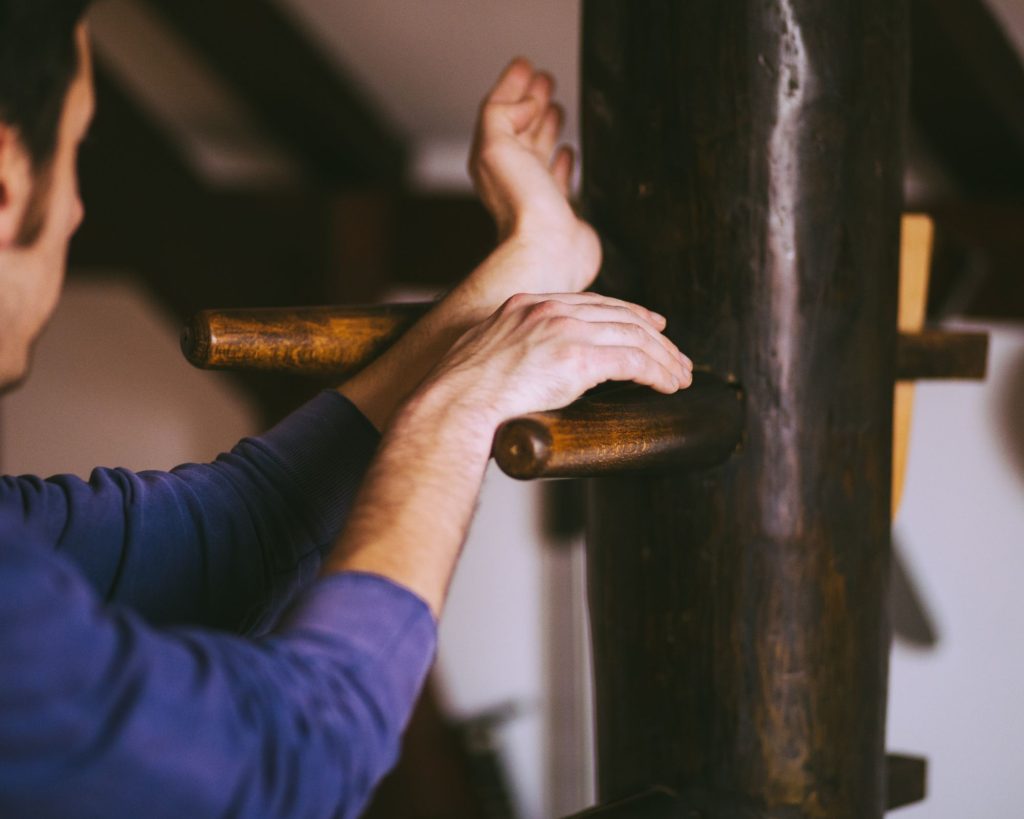
As a martial art, Wing Chun has been around for centuries and has been popularized through various movies and appearances in popular culture. But is it worth investing your time and energy into?
Don't worry, that's exactly what we'll be looking into today. In this comprehensive guide, we'll explore the pros and cons of learning Wing Chun, so that you can make an informed decision.
Understanding The Pros & Cons

Before we dive into the specifics, let's first try to understand the general pros and cons of learning Wing Chun.
On the plus side, Wing Chun is a practical self-defense system that focuses on practical techniques and efficient movements. It also cultivates the mind and body through a holistic approach to martial arts training.
On the downside, Wing Chun has its limitations, particularly in terms of range and application. It's also lacking in sparring opportunities, which can make it difficult to apply what you've learned in a real-world scenario.
Additionally, some of the techniques may not be as effective as they appear in theory.
While the limitations of Wing Chun may deter some martial arts enthusiasts, it's worth noting that the system offers unique benefits that are hard to find in other styles.
For instance, Wing Chun's emphasis on close-range combat and quick, efficient movements makes it an ideal self-defense option for those who may not have the strength or speed to overpower their opponents.
Pros: Practical Self-Defense

One of the biggest advantages of learning Wing Chun is its practical self-defense techniques. Unlike some other martial arts that focus on flashy moves or complicated forms, Wing Chun emphasizes simple, direct, and efficient movements that can be used in real-world situations.
For example, Wing Chun's emphasis on close-range combat makes it particularly effective in hand-to-hand combat situations. Its techniques are designed to take advantage of an opponent's weaknesses and use their own strength against them.
In addition to its practicality, Wing Chun also offers a unique mental and physical workout that can help practitioners develop strength, agility, and focus.
Furthermore, the training can help increase confidence and self-esteem, which can have a positive impact on various aspects of life, both inside and outside of the dojo.
Lastly, Wing Chun's holistic approach to martial arts can foster a sense of community and camaraderie among practitioners, making it a great way to meet new people and form lasting friendships.
Cons: Limited Range & Application

Wing Chun, with its emphasis on close-range combat, can be a powerful tool for self-defense. But let's face it, there are times when you need to keep your attacker at a distance. In situations like these, Wing Chun may not be your best bet.
Imagine someone coming at you with a weapon or launching an attack from across the room. If you're up against that, then you'll need other kinds of techniques to keep you safe from harm.
It's also important to note that Wing Chun's arsenal of techniques is somewhat limited. While it's great for close combat, it may not be as effective against multiple attackers or when grappling on the ground.
These situations require a broader set of skills and techniques that Wing Chun may not offer.
Of course, this doesn't mean that Wing Chun is useless--far from it! It's an excellent martial art with many benefits.
But like any tool, it has its strengths and weaknesses. If you're considering Wing Chun for self-defense, to understand its limitations and to be prepared to supplement your training with other techniques and skills as needed.
Pros: Focus on Efficiency

Efficiency is one of the key principles of Wing Chun. Its techniques are designed to be quick, direct, and effective, without any wasted movements.
This focus on efficiency makes it an ideal martial art for those who want to learn self-defense without spending years mastering complicated forms.
In fact, Wing Chun is often referred to as the "economy of motion" martial art because it emphasizes using the least amount of energy possible to achieve the desired result, so it's wonderful for people of all ages.
Whether you're a young, energetic athlete or an older person looking for an effective way to defend yourself, Wing Chun has something to offer.
Its emphasis on efficiency and directness means that you can start learning effective self-defense techniques right away, without having to spend years mastering complicated forms.
And you can practice it for years to come, always improving your technique and refining your skills. With its focus on simplicity and effectiveness, Wing Chun is absolutely a martial art for the modern age.
Cons: Lack of Sparring

While Wing Chun is undoubtedly an effective martial art for self-defense, the lack of sparring opportunities can be a hindrance for some practitioners.
Without the chance to spar with a resisting opponent, it can be hard to know whether your techniques will hold up in a real-world situation.
Sparring is a crucial part of martial arts training because it helps you develop timing, distance, and accuracy in a safe and controlled environment.
It also helps you get used to the feeling of being hit, which can be a valuable experience when it comes to dealing with the stress of a real-life confrontation.
Without sparring, it can be easy to fall into the trap of practicing techniques in a vacuum, without considering how they will work in a dynamic, unpredictable situation. This can lead to a false sense of confidence and an inability to adapt to unexpected situations.
That being said, Wing Chun's lack of emphasis on sparring does have its benefits. It allows practitioners to focus on refining their techniques and developing their muscle memory without the added stress of sparring.
It also means that Wing Chun can be practiced by people of all ages and physical abilities, making it an accessible martial art for many.
Pros: Cultivation of Mind & Body
Wing Chun is more than just a means of self-defense - it's a practice that seeks to unite the mind and body. Through a blend of physical training and holistic techniques, practitioners can achieve a state of deep focus and relaxation that extends beyond the dojo.
This focus on mindfulness and inner peace is what sets Wing Chun apart from other martial arts.
By cultivating breathing techniques, meditation practices, and relaxation exercises, students can experience a range of physical and mental benefits. Increased flexibility, improved concentration, and reduced stress are just a few of the positive outcomes that come from this kind of training.
With its emphasis on both practical self-defense and holistic wellness, Wing Chun truly offers a unique approach to martial arts.
Cons: Potentially Ineffective Techniques

It behooves us to recognize that some of Wing Chun's techniques may not always deliver the intended results, despite their apparent efficacy in theory.
This could manifest in the form of difficulty executing certain techniques when confronted with real-world scenarios, or worse, finding those techniques to be ineffective against a larger, stronger opponent.
Additionally, Wing Chun's narrow range of techniques could limit its versatility when compared to other martial arts systems, potentially placing its practitioners at a disadvantage in circumstances that require rapid adaptation to changing circumstances or adversaries.
In effect, the efficacy of Wing Chun's techniques can sometimes be circumstantial, and it is imperative that practitioners are aware of their limitations in order to fully leverage their strengths.
Conclusion
So is Wing Chun worth learning? The answer to that question depends on your personal goals and interests. If you're looking for a practical self-defense system that emphasizes efficiency and cultivates the mind and body, then Wing Chun could be a good choice.
However, if you're looking for a martial art that has a wider range of techniques and applications, or one that places a heavy emphasis on sparring and competition, then you may want to consider other options.
Ultimately, the decision to learn Wing Chun should be based on your individual needs and preferences.
That's about it for Wing Chun! Take a look at BJJ next here!
[author-box-jpx-fitness]
